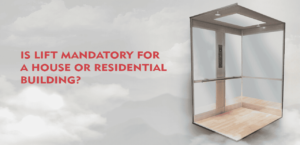What is Modular Construction? Difference Between Modular and Traditional Construction
Have you ever questioned if there’s a faster and more efficient way to build homes without compromising quality? What if you can have your dream home built offsite and finally assembled on your property? With the upward push of modular creation, this possibility is becoming a reality for more house owners and businesses.
So, what is modular construction, and how does it stack up to conventional construction strategies? Let’s dive into this innovative approach to see how modular construction can change your view on constructing homes forever.
What is Modular Construction?
Modular construction refers to a process where sections of a building are constructed off-site in a factory-controlled setting and then assembled on-site. These prefabricated sections, known as “modules”, are constructed with great efficiency, which allows for faster construction times and consistent quality.
Once it is done, the modules are brought to the final position and assembled to form the final structure. In its basic sense, modular construction takes the principles of the assembly line to the construction business, proving to be economical and suitable for use in constructing houses, apartments, offices, and commercial projects. Get in touch with the best construction company in Bangalore today!
Difference Between Modular and Traditional Construction
When it comes to ‘what is modular construction’ and choosing between modular and traditional construction, each approach has its advantages. Here are six key differences:
- Construction Time: One of the remarkable benefits of modular construction is that the construction time is far less when compared to conventional construction. Unlike traditional construction, where site preparation and construction of modules are carried out on-site, the former being done in a factory, the time taken for construction is cut down by a greater extent. In traditional construction, each step occurs sequentially, leading to longer timelines.
- Quality control: In modular construction, various components are constructed within factories so that quality and accuracy are maintained at an optimum level. The traditional construction, however, depends on construction site conditions, which may be influenced by factors such as weather and thus may lead to construction inconsistencies if not monitored properly.
- Cost Efficiency: Modular construction has the added advantage of being more cost-effective than traditional construction methods since there’s an incorporation of less labour, minimal wastage, and a brief time of construction. In traditional construction, the costs can be higher due to uncertain effects such as weather conditions, delays, wastage of materials, and excess work time for employees.
- Environmental Impact: Modular construction seems to be more sustainable in the sense that it is likely to generate little waste and will require fewer resources. Factory conditions allow for efficient material usage and recycling. Traditional construction tends to generate more waste and unused materials, and on-site changes are common, which has its advantages.
- Design Flexibility: While modular construction offers a range of designs, traditional methods provide a bit more flexibility for customisation and unique architectural details. Modular construction is accurate since structures follow a certain plan; however, it is possible to adjust them up to a certain extent, though traditional methods may be more suited for intricate, custom architecture.
- Safety: Modular construction comes with a reduced risk to the workers since several construction processes are done indoors, eliminating the risks of falls and extreme working conditions. Traditional construction has different problems at construction sites that are safety issues; therefore, in order to safeguard the workers, there is a necessity to be compliant with safety standards.
Types of Modular Construction
When it comes to what is modular construction, it comes in various forms, each catering to different needs and purposes. Let’s explore the main types:
- Permanent Modular Construction (PMC): Permanent Modular Construction is built to remain in its place after assembly. Common for residential and commercial applications, PMC is durable and available in many designs. It is as durable as conventional buildings and is commonly used for the construction of houses, schools, and hospitals. PMC should be an excellent choice for those who want a permanent structure in their house with the modularity, hence the efficiency.
- Relocatable Buildings (RB): These are partially or fully built structures that may be transported to several locations. These are commonly employed to meet short-term requirements such as classrooms, offices at construction sites, or emergency housing. Relocatable buildings are quite popular due to the flexibility that accompanies the buildings primarily for temporary or portable construction.
- Hybrid Modular Construction: Hybrid modular construction blends both traditional and modular methods, allowing specific sections of a building to be constructed on-site, while others are prefabricated. This type is ideal for a project that requires design solutions or specific architectural features in combination with modular construction.
- Stackable Modular Construction: Stackable modular construction involves stacking multiple modules on top of each other to create multi-story buildings. Applicable in apartment buildings, hotels, or commercial buildings, this method takes little time to construct as it provides convenient and efficient ways of using large land. Modular structures on top of each other allow the employment of construction scaffolding and follow special requirements regarding the building structural stability for multi-story constructions.
- Volumetric Modular Construction: In volumetric modular construction, complete rooms or spaces, like a bathroom or kitchen, are constructed off-site and then transported for on-site installation. This type is especially useful for designs with recurring patterns of plans, for instance, hotels or hospitals where the same plan is utilised, floor by floor or wing by wing. The modular rate of volumetric construction is effective due to the minimal finishing that is usually needed on-site.
- Panelized Modular Construction: Unlike volumetric modules, which are fully assembled spaces, panelized construction involves building individual wall, floor, or roof panels that are transported to the site and assembled there. It allows for more design flexibility and is ideal for homes or buildings requiring architectural customisation. Panelized modular construction combines the benefits of factory precision with on-site assembly options.
Advantages of Modular Construction
When it comes to what is modular construction, modular construction is transforming the building industry due to its various benefits. Here are five key advantages:
- Speed and Efficiency
Since modular construction entails developing sections of a structure in a factory and then transporting them to the site for installation, it takes considerably less time to build than traditional construction methods. Easier construction is made possible by the use of prefabrication processes within constructions.
- Quality Assurance
This is because the construction of building modules entails building structures to a particular design and having a quality assurance that the building modules are constructed in a controlled environment to reduce vocation to outside influences such as weather conditions. Time is closely monitored, thus improving the quality of work done.
- Cost Savings
Lower labour costs, efficient use of materials, and minimised delays contribute to cost savings in modular construction, making it a budget-friendly option for many projects. Contact us for building construction in Bangalore today!
- Eco-Friendly
Due to the effective control of waste, the use of environmentally friendly materials, and the low carbon footprints, modular construction is environment-friendly, thus providing a better solution to construction.
- Safety and Reduced On-Site Risks
The majority of the work occurs in factories and workshops, and this lowers certain risks on construction sites for employees and improves overall safety.
See Also: Building Materials Used in Construction, Their Purpose & Properties
Why Choose TeamHome for Your Construction Needs?
When it comes to reliable and high-quality construction, TeamHome stands out as the best construction company in Bangalore. We’re here to make your DreamHome a reality, tackling challenges with our expert professionals to ensure your home-building journey is easier, transparent, organized, and cost-effective. With TeamHome, you’re guaranteed a well-engineered, fail-safe, and straightforward building process that meets the highest standards.
Key Takeaways
- Modular construction involves prefabricated building sections in a factory and assembling them on-site, offering faster, more efficient, and cost-effective construction.
- Modular construction offers several advantages over traditional methods, including reduced construction time, improved quality control, cost-effectiveness, environmental friendliness, and increased safety.
- Different types of modular construction cater to various needs, including permanent, relocatable, hybrid, stackable, volumetric, and panelized.
- Modular construction is ideal for residential, commercial, and industrial projects, offering flexibility and customization.
- TeamHome is a reliable partner for modular construction projects, providing expert services and innovative solutions to make your dream project a reality.
Frequently Asked Questions (FAQs)
What is modular construction? It’s an innovative building method where structures are manufactured in factory-made sections, or “modules,” and then transported to the construction site for assembly. This offsite process increases construction speed, efficiency, and quality control, with modules designed to fit together seamlessly for both residential and commercial buildings.
There are various types of modular construction, including permanent modular construction (PMC), relocatable modular buildings (RMB), interlocking module construction, stackable modular units, and hybrid modular construction. Each type serves unique purposes, from permanent housing to temporary facilities, catering to diverse building needs while ensuring speed and adaptability.
What is modular construction known for? Benefits include faster build times, consistent quality from factory-based production, cost savings through reduced labour and materials, and environmental advantages due to minimal waste. It also allows for high customization and offers flexibility, accommodating various architectural styles and building requirements.








